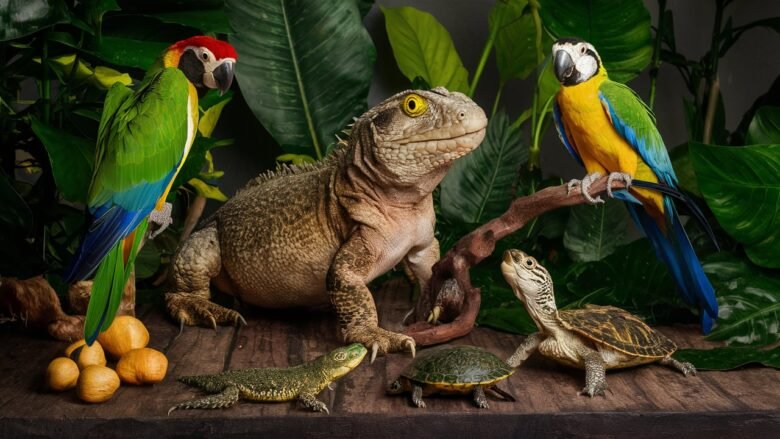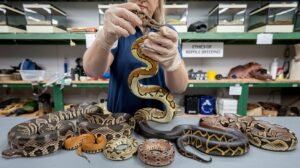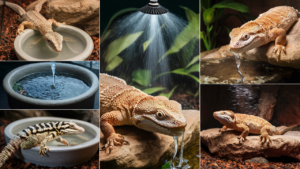In the world of animal care, understanding the specific needs of reptiles, fish, parrots, and turtles is essential for their well-being. This article delves into effective heating solutions for reptiles, the cycling process for fish tanks, behavioral signs in parrots, and nutritious diet plans for turtles, offering insights to enhance their health and happiness.
Reptile Heating Solutions
Heating solutions for reptiles are vital for their health and activity. Options include heat lamps for basking, heat mats for substrate warmth, and thermostat controls to monitor temperatures. Maintaining species-specific temperature ranges is critical, as overheating can cause severe stress or death. Implement a secure setup by positioning heat sources appropriately within terrariums, ensuring a gradient from warm to cool areas for behavioral thermoregulation.
Understanding Fish Tank Cycling
Understanding Fish Tank Cycling: Cycling an aquarium establishes essential beneficial bacteria, pivotal for water quality. The nitrogen cycle converts harmful ammonia to nitrites, then to less toxic nitrates. Monitoring ammonia, nitrite, and nitrate levels avoids ‘new tank syndrome,’ ensuring fish health and stability.
Recognizing Parrot Behavioral Signs
Recognizing the behavioral signs in parrots is essential for their health and mood assessment. Common indicators include feather plucking, which can signal stress or illness, vocalizations that reflect their emotional state, and body language like head tilting. Understanding these signs is vital, as they require ample social interaction and mental stimulation to thrive. Regular enrichment activities and companionship can significantly enhance their well-being, preventing undesirable behaviors that stem from boredom or anxiety. Noticing and interpreting these subtle cues fosters a deeper bond between parrot and owner, ensuring a happier, healthier companion.
Balanced Diet Plans for Turtles
Understanding the dietary needs of turtles is crucial for their health. Different species require varying levels of proteins, leafy greens, and commercial turtle foods. A balanced diet supports proper growth, shell health, and immune function, promoting longevity and vitality in your pet turtles.
Variety is essential; mix high-quality protein sources like insects, along with an array of vegetables such as kale and collard greens. Hatchlings require more protein for growth, while adults benefit from a greater proportion of plant material, ensuring nutritional balance across life stages.
To foster optimal health, feed turtles small portions multiple times a week, closely observing their preferences and adjusting diets to prevent obesity and nutritional deficiencies. Regular dietary changes stimulate their interest and enhance their overall well-being.
Connecting Heating and Nutrition Across Species
Heating solutions for reptiles greatly impact metabolic rates and feeding habits, reinforcing the connection between temperature and nutrition. For turtles, stable heat supports their digestive efficiency, leading to consistent feeding patterns and growth rates. Environmental stability is thus essential for overall health.
Holistic Care for Aquarium and Aviary
Understanding the nuances of heating solutions for reptiles enhances their overall well-being, just as effective fish tank cycling ensures a balanced aquatic ecosystem. In aviaries, recognizing parrot behavioral signs can lead to more tailored interactions, fostering trust and enrichment. Meanwhile, crafting a comprehensive turtle diet plan ensures these creatures receive essential nutrients, promoting longevity and vibrant health. Incorporating proper heating, cycling, behavior assessment, and nutritional strategies creates a harmonious environment for all pets, empowering owners to deliver optimal care. Each pet owner’s diligent attention to these interconnected elements will result in flourishing, happy companions in both aquariums and aviaries.
Conclusions
In summary, the proper care for reptiles, fish, parrots, and turtles involves understanding their unique requirements. From heating solutions and tank maintenance to behavioral insights and dietary needs, adopting these practices ensures a thriving environment for your pets. By prioritizing their welfare, we contribute to their long-term health and well-being.



